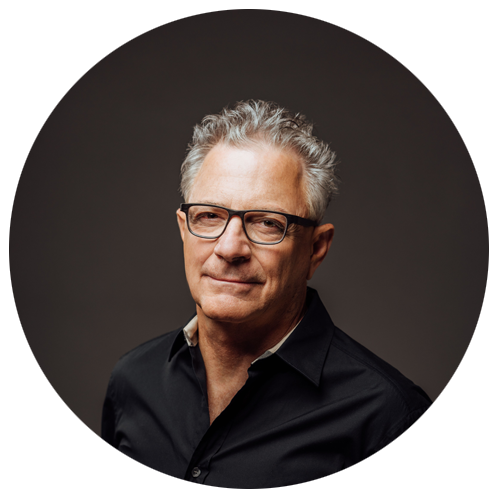You wake with a blinding insight that can totally change your life—but as you try to pull all the threads together, they get more elusive. In the end, your dream drifts away, and you’re left with the feeling that you’ve just lost something important. The content of your dreams may hold important keys to solving problems, boosting your creativity and connecting you more deeply to your inner self. Luckily, you can cultivate certain habits to help you remember your dreams more completely.
Why Do We Forget Our Dreams?
Remember that little factoid about noradrenaline levels during REM sleep? Some researchers believe that those low noradrenaline levels may also be the reason that many people have trouble remembering their dreams after they wake. Scientists have identified two neurochemicals that are important for memory retention: noradrenaline and acetylcholine. During REM sleep, acetylcholine levels spike to waking levels, but noradrenaline levels stay low. That may be why dreams can seem vivid and real, but people don’t retain the memories after waking.
But there could also be something else at work: your hippocampus. That’s the part of the brain that helps move information from short-term memory to long-term memory. It’s the last part of your brain to “fall asleep” at night and the last to wake up in the morning—as much as two full minutes after waking. According to Thomas Andrillon, a researcher at Monash University in Melbourne, Australia, that means there’s a short period of time after you wake when you remember your dream, but that memory never gets sent to your long-term memory, because the part of your brain that does that isn’t quite awake yet.
How to Remember Your Dreams
So, you can learn from your dreams, heal with the help of your dreams, and solve thorny problems while you’re dreaming—but what good is all of that if you can’t remember those flashes of insight when you wake?
While there is evidence that your dreams help you even if you don’t remember them, research also shows that people who remember their dreams after they wake retain what they’ve learned far better than those who don’t. These five tips can help you train yourself to remember more of your dreams.

Source: Getty Images
1. Drink a lot of water before you go to bed
Robert Stickgold, an associate professor of psychology at Harvard Medical School, points out that people who wake during the night often remember their dreams better than those who sleep a solid eight-hour stretch. Drinking two or three glasses of water before bed will make sure your bladder wakes you up, and you’ll be more likely to remember what you were dreaming.

Source: Getty Images
2. Avoid alcohol before sleeping
Research shows that alcohol disrupts the normal sleep cycle, suppressing REM sleep early in the night, and hyper-charging it later. Disturbed sleep patterns aren’t good for you, and aren’t good for your dreams.

Source: Getty Images
3. Tell yourself you’re going to remember your dreams
Seriously. The power of positive affirmation is a real thing. When you’re about to fall asleep, keep telling yourself that you’re going to remember your dreams. Try to make it the last thing you consciously think before you nod off.

Source: Getty Images
4. Lay still and remember when you first wake
When you wake up, just lay there with your eyes closed and let the dream linger. Any kind of movement, even opening your eyes, moves you into a more fully awake state and pushes the dream out of your memory.

Source: Getty Images
5. Write down your dreams
Finally, when you’ve got as much of your dream as you can remember fully in your mind, write it in a dream journal. Make it part of your wake-up routine so that you further impress your subconscious that remembering your dreams is important.
Your dreams hold insights that your conscious brain can’t access. Cultivating habits that help you remember your dreams empower you to make use of one of the brain’s most amazing and least understood functions. So drink up before bedtime tonight, and prepare to start remembering what your subconscious is telling you.
Written by Deb Powers
Deb Powers is a freelance writer who writes frequently about metaphysical topics. She has incorporated the language of dreams into several self-published decks of tarot and oracle cards meant for self-reflection, connection and empowerment.
References:
- https://greatergood.berkeley.edu/article/item/why_your_brain_needs_to_dream
- https://www.ncbi.nlm.nih.gov/pubmed/30091247
- https://www.ncbi.nlm.nih.gov/pubmed/30127760
- https://www.livescience.com/62703-why-we-forget-dreams-quickly.html
- https://www.nytimes.com/2017/01/27/magazine/how-to-remember-your-dreams.html
- https://www.psychologytoday.com/us/blog/sleep-newzzz/201801/alcohol-and-sleep-what-you-need-know

Stephen Aizenstat
Stephen Aizenstat, Ph.D., is the founder of Dream Tending, Pacifica Graduate Institute, and the Academy of Imaginal Arts and Sciences. He is a world-renowned professor of depth psychology, an imagination specialist, and an innovator. He has served as an organizational consultant to major companies and institutions, and as a depth psychological content advisor to Hollywood film makers. He has lectured extensively in the U.S., Asia, and Europe. He is affiliated with the Earth Charter International project through the United Nations, where he has spoken. Professor Aizenstat is the Chancellor Emeritus and Founding President of Pacifica Graduate Institute. He has collaborated with many notable masters in the field including Joseph Campbell, James Hillman, Marion Woodman, and Robert Johnson.
Unleash your creativity and innate genius
Learn the Power, Purpose and Intelligence of Dreams
Improve the quality of your relationships, discover your authentic life purpose and improve your emotional and physical health with the Dream Tending Academy.
Free e-book download
For over 40 years, I have devoted my life to understanding the profound wisdom and healing power that exists within each of us. I am excited to share my latest e-book that showcases how to tap into your dream state through the powerful applications of creativity and innovation. By following my groundbreaking methods and techniques, you will discover how to unlock your creative potential, increase your emotional and intellectual bandwidth, and realize your personal and professional goals. Download my e-book and unlock the secrets of your dreams and deep imagination!








